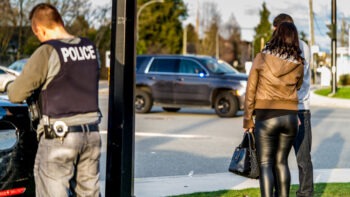
The easiest way to get a police report for your Florida car accident is by contacting the records department of the reporting police officer’s precinct and asking them for a copy. The reporting officer, in this case, is the police officer that arrived at the scene of your accident and wrote the report. When you contact them with this request, they’ll tell you how to get it.
Every police division or precinct has an established process for attending to these requests. Some precincts offer instant access to the report by allowing you to download it online, some will ask you to send an email inquiry, and some will only provide the report if you go to the station physically.
Find out what works for the precinct in question and follow their process. If you want an easier alternative, you can just have one of the Florida car accident lawyers at Fasig Brooks follow up on the police report and obtain it for you during the process of filing your car accident claim.
Things You’ll Require to Pick Up the Car Crash Police Report
No random person can just walk into a police station to request a car accident report. Anyone asking for the accident report must have some relevant details that the police will need to identify the right report. Some of these details are:
- The car accident report’s identification number
- The time, date, and location of the accident
- The case number, if you have it
- An affidavit called the Sworn Statement to Obtain Traffic Crash Report Information showing that you were involved in the accident, which you can easily obtain from the Florida Highway Safety and Motor Vehicles website
- The name of the police officer that was at the scene of the accident
- The names or identities of the involved parties
Technically, you’ll need to provide some of this information for them to locate your report. However, that may take longer than necessary, which is why we recommend that you have all the details of the case if possible. This will help speed up the process of obtaining a copy of the report.
Reasons Why You May Need to Request a Police Report for Your Car Accident Claim
You probably know why you need the report already. But not everyone involved in an auto wreck will understand the importance of this accident report and why they need one. Here are some reasons for obtaining a car accident police report:
- It’s proof to the insurance companies that your accident actually happened
- Often provides an unbiased and objective view of the auto crash
- Could contain the law enforcement officer’s opinions on why the accident occurred
- You can identify and correct possible errors made by the law enforcement officer at the scene of the accident
- Often contain statements from witnesses, passengers, and other drivers, which can be used to corroborate your statement
- Usually has an auto crash scene diagram with details like the point of collision, car paths, and state of the accident scene
- Can serve as a crucial element for obtaining high settlement amounts
Of course, these reports can also “indict” you and show that you were wholly or partly at fault. So, it’s a bit of a loaded gun. But if you’re certain that you weren’t wholly or even partially responsible for the car wreck, this will exonerate you and help you or your car accident attorney pursue and recover adequate compensation for your troubles.
When Will My Police Report Be Available?
Car accident police reports are usually created by the investigating officer who was present at the scene of the accident. Most police officers will hand you a receipt containing the identification number of the report at the scene of the accident. These reports will be available for you to access up to 10 days after your accident.
If you have your receipt and the name of the officer who arrived at the scene, you can simply contact the local traffic division of the police station whose officers responded to the incident, pay a $15 administrative fee, and they should send you a copy.
If you don’t want to pay any fees, you can see if the insurance company handling your claim already has it. If they do, you can ask for a copy, and they’ll likely give you one free of charge.
This report is typically only available to the involved parties, law enforcement agencies, and insurance companies for the first 60 days after the crash. After that, the report goes into the public domain.
What if the Law Enforcement Agent didn’t File the Accident Report?
You may need to file the report by yourself. However, you only have 10 days after the traffic collision to report the incident and file it according to Florida’s laws. However, please note that after filing the report, an investigating officer will look into it to ascertain the facts of the case.
The problem with this is that it can take the law enforcement officer a while to investigate and draw you a report of the case. Sometimes, this happens when law enforcement agents don’t respond to calls about the incident or get there too late.
Also, both parties may have just decided to swap insurance information and go their separate ways in the hopes that having those details and filing them with the various insurance providers would be enough to start and conclude their compensation claims process.
This is why it’s often a smart idea to contact the police right after a car crash in Florida. Doing this early will help ensure that your claim goes through on time and avoid long wait times.
Contact a Florida Car Accident Lawyer
Even if the car crash was minor, you should talk to the Florida car accident lawyers at Fasig Brooks. This is because, sometimes, injuries don’t show up until much later. Examples of this include whiplash or even catastrophic injuries.
If you didn’t call the cops when the accident occurred and didn’t file a report, chances are your injury claim can be denied by the insurance company. The good thing is if you talk to our experienced car crash attorneys in Florida, we’ll be able to provide solid legal counsel and representation that will help you.
We can also help you obtain the police report, file your injury claim, and do everything necessary to expedite the compensation process. Contact us today to discuss your case for free. Our lawyers are waiting to speak to you.







